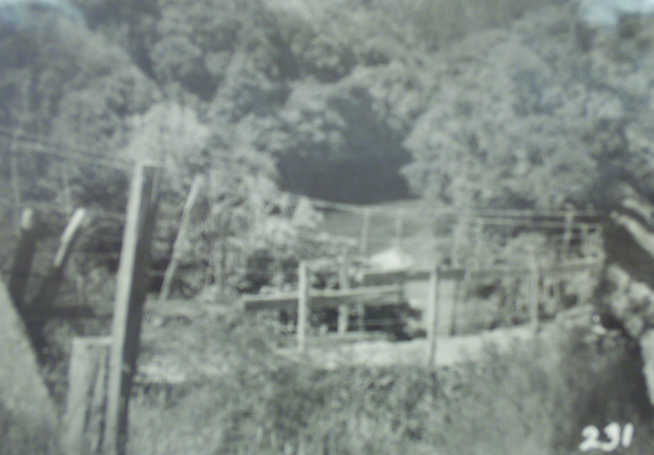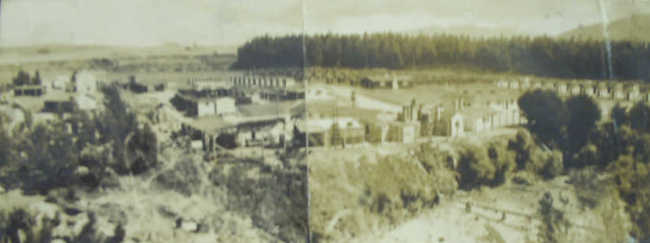Selected by Commander Robert Green, Royal Navy (Retired) – 23/10/97
Introduction by Commander Robert Green “On 1 October 1997 in Wellington, General Lee Butler USAF (Ret) delivered the second Erich Geiringer Memorial Oration. [Dr Geiringer was a key mover in getting the World Health Organisation to ask the World Court for its opinion on the legal status of nuclear weapons in 1993. Sadly, he died a year before the Court gave its opinion on 8 July 1996.] General Butler, as Commander in Chief US Strategic Command 1992-94, was in charge of all US nuclear planning. A year ago, he first spoke out for the abolition of nuclear weapons. This speech, by probably the most important former US military leader ever to visit New Zealand, took his arguments against nuclear weapons an important stage further.”
Personal thoughts on his own experience 1) To borrow novelist Flannery O’Connor’s restatement of a classic quote, “you shall know the truth and the truth shall make you odd.”
2) My purpose in entering the debate was to help legitimize abolition as an alternative worthy of serious and urgent consideration. My premise was that my unique experience in the nuclear weapons arena might help kindle greater antipathy for these horrific devices and the policies that justify their retention by the nuclear weapon states.
3) Converts are being won on many fronts to the propositions that these issues matter, that nuclear arsenals can and should be sharply reduced, that high alert postures are a pernicious anachronism, and that proliferation of nuclear weapons is a clear and present danger. I am persuaded that in every corner of the planet, the tide of public sentiment is now running strongly in favor of diminishing the role of nuclear weapons. Indeed, I am convinced that publics are well out in front of their governments in shaking off the grip of the Cold War and reaching for opportunities that emerge in its wake.
4) Conversely, it is distressingly evident that for many people, nuclear weapons retain an aura of utility, of primacy and of legitimacy that justifies their existence well into the future, in some number, however small. The persistence of this view lies at the core of the concern that stirs my very soul.
5) I live with the knowledge that this abiding faith in nuclear weapons was inspired and is sustained by a catechism instilled over many decades by a priesthood who speak with great assurance and authority.
6) These enduring beliefs, and the fears that underlie them, perpetuate Cold War policies and practices that make no strategic sense. They continue to entail enormous costs and expose all mankind to unconscionable dangers. I find that intolerable, and therefore I cannot stay silent. I know too much of these matters, the frailties, the flaws, the failures of policy and practice.
7) I came to see it as a modern day holy war, a cosmic struggle between the forces of light and darkness. The stakes were national survival, and the weapons of choice were eminently suited to this scale of malevolence.
8) From the earliest days of the nuclear era, the risks and consequences of nuclear war have never been properly understood.
9) The stakes of nuclear war engage not just the survival of the antagonists, but the fate of mankind.
10) I have no other way to understand the willingness to condone nuclear weapons than to believe they are the natural accomplice of visceral enmity. They thrive in the divisive, emotion-charged climate born of alienation and isolation. The unbounded wantonness of their effects is a perfect companion to the urge to destroy completely. They play on our deepest fears and pander to our darkest instincts. They corrode our sense of humanity, numb our capacity for moral outrage, and make thinkable the unimaginable. What is anguishingly clear is that these fears and enmities are no respecter of political systems or values. They prey on democracies and totalitarian societies alike, shrinking the norms of civilized behavior and dimming the prospects for escaping the savagery so powerfully imprinted in our genetic code. That should give us great pause as we imagine the task of abolition in a world that gives daily witness to acts of unspeakable barbarism. So should it compound our resolve.
11) I was caught up in the holy war, inured to its costs and consequences, trusting in the assertions of the nuclear priesthood and the wisdom of my seniors.
On Deterrence 1) Bound up in this singular term, this familiar touchstone of security dating back to antiquity, was the intellectually comforting and deceptively simple justification for taking the most extreme risks and the expenditure of trillions of dollars.
2) We ignored, discounted or dismissed its flaws and cling still to the belief that it obtains, in a world whose security architecture has been wholly transformed.
3) Now, with the evidence more clear, the risks more sharply defined and the costs more fully understood, I see deterrence in a very different light. Appropriated from the lexicon of conventional warfare, this simple prescription for adequate military preparedness became in the nuclear age a formula for unmitigated catastrophe.
4) Deterrence evolved from an increasingly convoluted morass of unwarranted assumptions, unprovable assertions and logical contradictions. By the end of the first decade of the Cold War, it had effectively served to suspend rational thinking about the ultimate aim of national security: to ensure the survival of the nation.
5) Deterrence in the Cold War setting was fatally flawed at the most fundamental level of human psychology in its projection of western reason through the crazed lens of a paranoid foe.
6) Little wonder that deterrence was the first victim of real world crises, leaving the antagonists to grope fearfully through a fog of mutual misperception toward the brink of nuclear holocaust.
7) While we clung to the notion that nuclear war could be deterred, Soviet leaders held fast the conviction that even a nuclear war must be won –and took herculean measures toward that end.
8) Deterrence was a dialogue of the blind with the deaf. In the final analysis, it was largely a bargain we in the West made with ourselves.
9) Deterrence was flawed equally in that the consequences of its failure were intolerable.
10) Deterrence carried a demon seed, born of an irresolvable contradiction, that spurred an insatiable arms race.
11) Through every corridor, in every impassioned plea, in every fevered debate rang the rallying cry, deterrence, deterrence, deterrence.
12) Emptied of any rational content, deterrence was reduced to a cheap carnival elixir, a rhetorical sleight of hand, deceptively packaged and oversold.
13) Over time, planning was increasingly distanced and ultimately disconnected from any sense of scientific or military reality. In the end, the nuclear superpowers created astronomically expensive infrastructures, monolithic bureaucracies and complex processes that defied control or comprehension. Only now are the dimensions, costs and risks of these nuclear nether worlds coming to light.
14) We cannot sit in silent acquiescence to the faded conscience, the voice of reason and the rightful interests of humanity.



